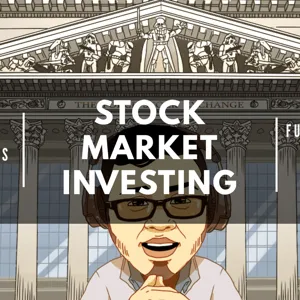Podcast Summary
President's Role in Economy Overestimated: Economists argue that presidents have less impact on economic factors than commonly believed
According to economist and Freakonomics co-author Steven D. Levitt, the role of the President of the United States in influencing the economy is often overestimated. Despite being the leader of the free world, Levitt argues that most economic factors are not directly impacted by government actions. Austin Goolsbee, a former Chairman of President Obama's Council of Economic Advisers, shares this perspective. This viewpoint, however, is met with criticism from both political sides. Regardless of personal political leanings, the upcoming presidential campaign is expected to focus heavily on economic issues. Listeners are encouraged to keep in mind that the president may have less influence on the economy than commonly believed.
The Illusion of Presidential Control Over the Economy: Presidents have limited ability to control the economy, despite common belief. Economic conditions, not candidate performance, largely determine election outcomes.
While politicians often claim they can significantly influence the economy through their executive powers, the reality is much more limited. As Austin Goolsbee points out, a president's ability to change the macro economy is extremely limited. This misconception stems from the idea that being a CEO translates directly to being a successful president. However, the scope of decision-making and control is vastly different between the two roles. A notable example of this misconception can be seen in the 2004 Bush-Kerry presidential election. Early exit polls showed Kerry as the winner, but ultimately, Bush emerged as the victor. Economist Justin Wolfers used this anomaly to conduct a study. His findings revealed that economic conditions, rather than candidate performance, were the primary determinants of the election outcome. In essence, while a CEO can make unilateral decisions and control the direction of their company, a president's power is more limited, and their ability to significantly impact the economy is largely an illusion.
President's Role in Economy: More Cheerleader Than CEO: Wall Street investors have limited influence on stock market differences between presidents, suggesting the president's role in the economy is more symbolic than controlling.
The role of a president in the economy may not be as significant as some may believe. During the brief period of a potential Kerry presidency, the stock market showed only a slight difference compared to a Bush presidency. This suggests that Wall Street investors, who closely watch the economy, do care about the president but their influence is limited. Economists often view the president's role in the economy as more of a cheerleader than a CEO. Despite this, presidential candidates rarely admit their lack of control over the economy on the campaign trail. Stephen Dovner, the speaker in this discussion, acknowledges this reality and is free from the political pressures that come with being a potential presidential candidate. For more insights on economics, visit Freakonomics.com.




